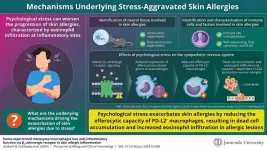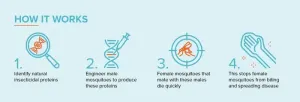The Heat Resilience & Performance Centre (HRPC) at the Yong Loo Lin School of Medicine, National University of Singapore (NUS Medicine) has been officially designated as the Global Heat Health Information Network (GHHIN) Southeast Asia Hub, a recognition that underscores its leading role in advancing heat resilience. This designation highlights the Centre's expertise in addressing the growing challenges of heat-related health risks in the region. With this appointment, the Centre is poised to play a pivotal role in working with the region to shape strategies, research, and policies aimed at mitigating the impact of extreme heat on public health, demonstrating its commitment to building resilience in the face of climate change.
The GHHIN Southeast Asia Hub was launched at the first GHHIN Southeast Asia Heat Health Forum, a four-day forum that will serve as a pivotal platform for fostering partnerships, advancing evidence-based policies to manage extreme heat risks effectively in the region, and enhancing the region’s collective capacity to protect lives and livelihoods. The opening ceremony of the forum was graced by Guest-of-Honour, Dr Koh Poh Koon, Senior Minister of State, Ministry of Sustainability and the Environment, and Ministry of Manpower
Organised by the GHHIN Southeast Asia Hub, and co-sponsored by the World Health Organization (WHO) and World Meteorological Organization (WMO), over 200 delegates will be participating in the four-day forum. Against a global backdrop of more intense climate change incidents with more frequent and severe heat events, the forum is themed “Toward a heat resilient Southeast Asia: Enhancing livelihoods and wellbeing”. The Forum will bring together global experts, policymakers, and researchers to discuss the growing challenges of extreme heat and its effects on human health, productivity, and urban resilience. Hosted in Singapore, this landmark event showcases collaborative strategies, community-driven solutions and innovative insights to address the urgent heat-related issues in the Southeast Asia (SEA) region and their global impact. The forum is supported by Wellcome, a global charitable organisation that focuses on science and research.
Addressing urban heat, workplace heat, and traditional and cultural approaches to heat management
Chairing the GHHIN Southeast Asia Hub, is Associate Professor Jason Lee, also the Director at the HRPC at NUS Medicine, who brings a wealth of research and translational experience that will help guide and accelerate the conversions specific to the SEA region.
His team spearheaded Project HeatSafe, which investigated the impact of rising temperatures on the health and productivity of people in Southeast Asia. The project has sparked important conversations throughout the region, inspiring discussions on how to replicate and refine its research methodologies for broader applications in the region.
A/Prof Lee said, “Leveraging Singapore’s strategic location and expertise in heat stress management, we aim to collaborate with our regional counterparts to tackle the unique and multifaceted challenges posed by rising temperatures in Southeast Asia. Unlike other regions, our tropical climate brings distinct hurdles such as high humidity compounding heat stress, the Urban Heat Island (UHI) effect exacerbated by rapid urbanisation, and socioeconomic disparities that leave outdoor and indoor workers particularly vulnerable. Our ageing population also faces heightened risks, making it imperative to empower individuals, communities, and society to thrive in an increasingly warmer world.”
As we build on past efforts to address the challenges of heat in Southeast Asia, it is essential to recognise that the regional heat health challenges can differ significantly from those in the Global North, such as:
High Humidity Compounding Heat Stress
In Southeast Asia, the chronic combination of high heat and humidity limits the body’s ability to cool down through sweat evaporation.
This exacerbates the physiological strain, leading to greater incidences of heat exhaustion and heat stroke compared to regions with lower humidity, posing a significant risk to outdoor workers and vulnerable groups.
UHI Effect and Rapid Urbanisation
Urban Heat Islands, which exacerbate the urban temperatures, are more pronounced in Southeast Asia due to rapid urbanisation and dense infrastructure, as well as reduced green spaces and cooling surfaces like water bodies.
Many Southeast Asian cities often lack the infrastructure to mitigate urban heat effectively, including low-income and informal housing areas particularly exposed to localised temperature spikes.
Socioeconomic Disparities and Outdoor and Indoor Worker Vulnerability
In Southeast Asia, socioeconomic inequalities exacerbate heat impacts, as a significant portion of the population relies on outdoor and indoor labour in agriculture, construction, manufacturing, and informal sectors, which are highly susceptible to heat stress.
Globally, 512 billion work hours were lost due to heat exposure in 2023, with the largest impact in low- and medium-HDI countries, including many in Southeast Asia. As a result of the work hours lost, it resulted in an estimated income loss of $835 billion.[1] [2]
Ageing Population and Vulnerability to Heat
Southeast Asia's population is ageing at a faster rate than many other parts of the world[3]. While the percentage of people aged 65 and above (7.9%)[4] is still lower than in regions like Europe or North America (19% and 17% respectively)[5], the pace of growth in this age group is significant. In countries like Singapore and Thailand (13.1% and 14.7% respectively)4, the proportion of elderly individuals is notable. For instance, Singapore has one of the fastest ageing populations in the world, with projections indicating that by 2030, about 25% of its population will be aged 65 and above.
Southeast Asia's ageing population faces heightened challenges in the context of extreme heat, as older adults are particularly vulnerable to heat-related illnesses due to physiological factors and pre-existing health conditions. The increased frequency and intensity of extreme heat exacerbate health risks, placing additional strain on healthcare systems. Ensuring the well-being of the elderly requires targeted interventions, such as improving access to cooling facilities, enhancing public health messaging, and developing community support networks to safeguard against the impacts of extreme heat in this vulnerable demographic.
HRPC outlines future plans as the GHHIN Southeast Asia Hub
As the newly launched GHHIN Southeast Asia Hub begins its critical journey, the next steps aim to build on the dynamic conversations initiated during the Forum. These steps will lay a strong foundation for regional collaboration, innovation, and progress in addressing the growing challenges of heat resilience in Southeast Asia. The Hub’s immediate priorities include:
Developing a Comprehensive Strategy and Workplan: Co-creating a roadmap that defines key milestones and measurable targets. This strategy will ensure that efforts are aligned with regional needs and that tangible progress is made toward building heat resilience.
Establishing a Stakeholder Network: Mapping out a Southeast Asia-focused network of partners and stakeholders across governments, academia, industries, and community organisations. This inclusive stakeholder map will be pivotal in fostering partnerships and promoting a coordinated regional response to heat health challenges.
Implementing a Knowledge-Sharing Framework: Creating a robust system to facilitate the exchange of expertise, best practices, and innovative solutions. This framework will encourage collaboration, reduce duplication of efforts, and accelerate the adoption of effective strategies across the region.
Through these actions, the GHHIN Southeast Asia Hub seeks to position itself as a leading regional hub, driving impactful collaborations and evidence-based solutions that safeguard lives and livelihoods against the escalating risks of heat stress.
“Together as a region, this is our opportunity to build stronger, and more heat-resilient communities,” A/Prof Lee added. “We are committed to face these challenges head-on and shape a more resilient Southeast Asia that can thrive in the face of climate change - for today, for tomorrow, and for future generations.”
[1] International Labour Organization. Statistics on Wages. 2024. https:// ilostat.ilo.org/topics/wages/
[2] International Labour Organization. Working on a warmer planet: the impact of heat stress on labour productivity and decent work. 2019. https://www.ilo.org/publications/major-publications/working-warmer-planet-effect-heat stress-productivity-and-decent-work
[3] AHWIN, “Data on Aging,” www.ahwin.org/data-on-aging; compiled based on United Nations, Department of Economic and Social Affairs, Population Division, World Population Prospects: The 2022 Revision, Key Findings and Advance Tables (2022)
[4] The Global Economy, “Population ages 65 and above - Country rankings,” 2023, https://www.theglobaleconomy.com/rankings/elderly_population/South-East-Asia/
[5] Statistico, “Population Distribution by Age and Continents”, Mar 28 2024, https://www.statistico.com/s/world-population-distribution-by-age-and-region
END






